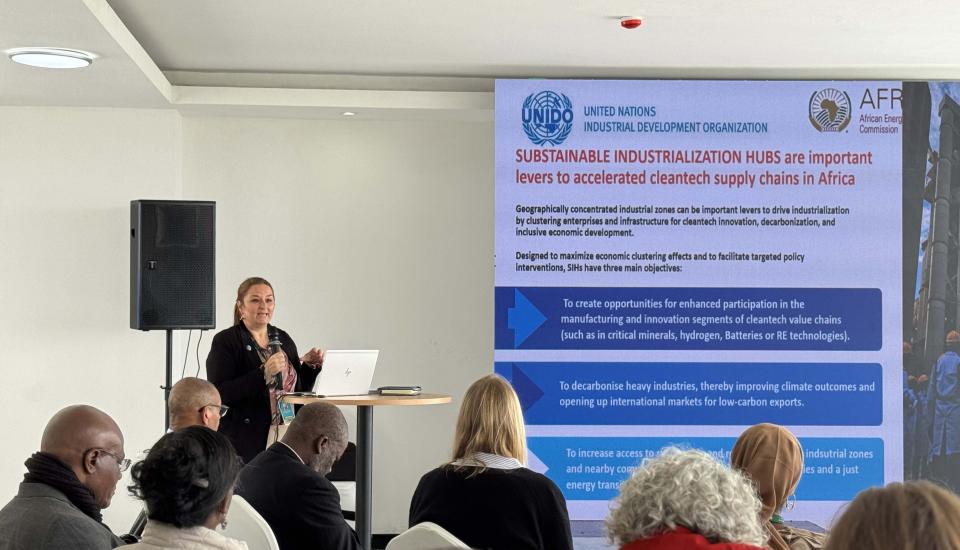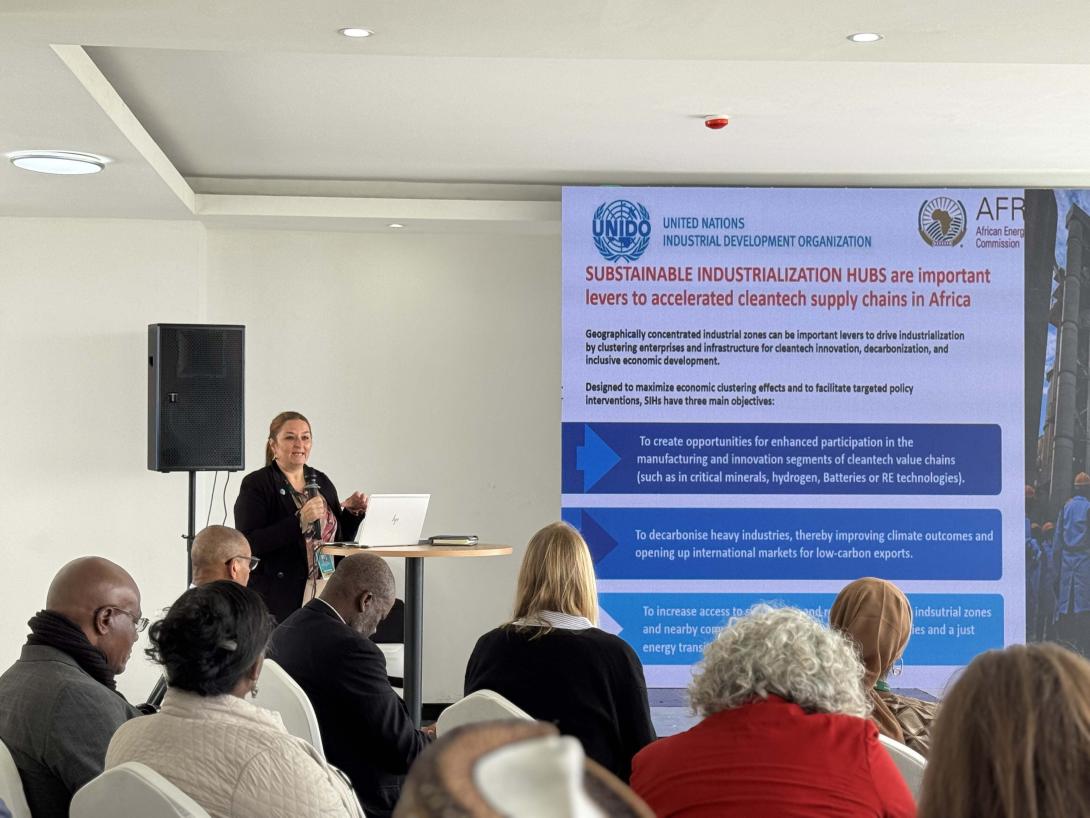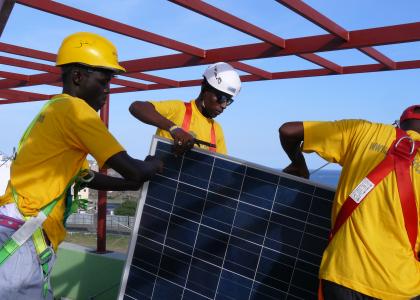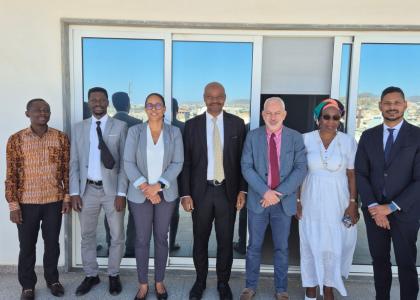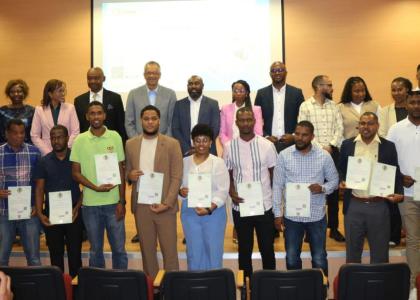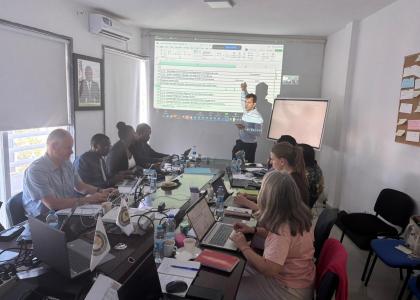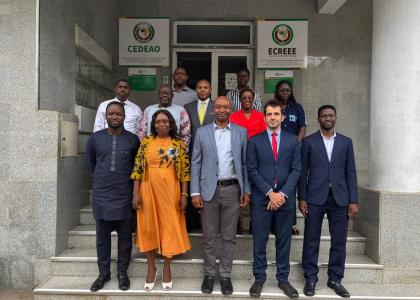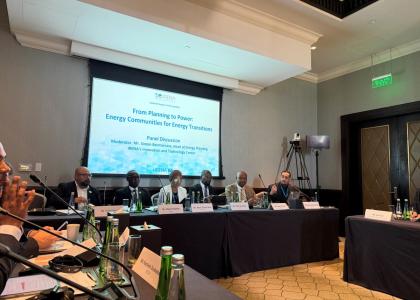Addis Ababa, Ethiopia September 10, 2025 - At the 2nd Africa Climate Summit, UNIDO convened a high-level roundtable to introduce the CLEVA Africa Programme and advance the concept by gathering evidence, refining priorities, and identifying actionable pathways for implementation. Presented by UNIDO Program Manager Karin Reiss-Haimbala, the program aims to accelerate Africa’s energy transition by developing resilient, integrated cleantech value chains. Jointly designed with the African Energy Commission (AFREC), this program collaborates with the Regional Economic Communities and their respective specialized institutions for energy, the regional Sustainable Energy Centres of South, East and Western Africa : SACREEE, ECREEE and EACREEE. CLEVA was introduced to a distinguished audience including AUDA-NEPAD, representatives from the Regional Sustainable Energy Centres, REN21, leading development finance institutions, private sector actors, and academic experts. The roundtable highlighted CLEVA’s potential to foster regional cooperation, attract investment, and transform industrial landscapes, positioning Africa as a competitive hub for sustainable, inclusive, and innovation-driven energy development.
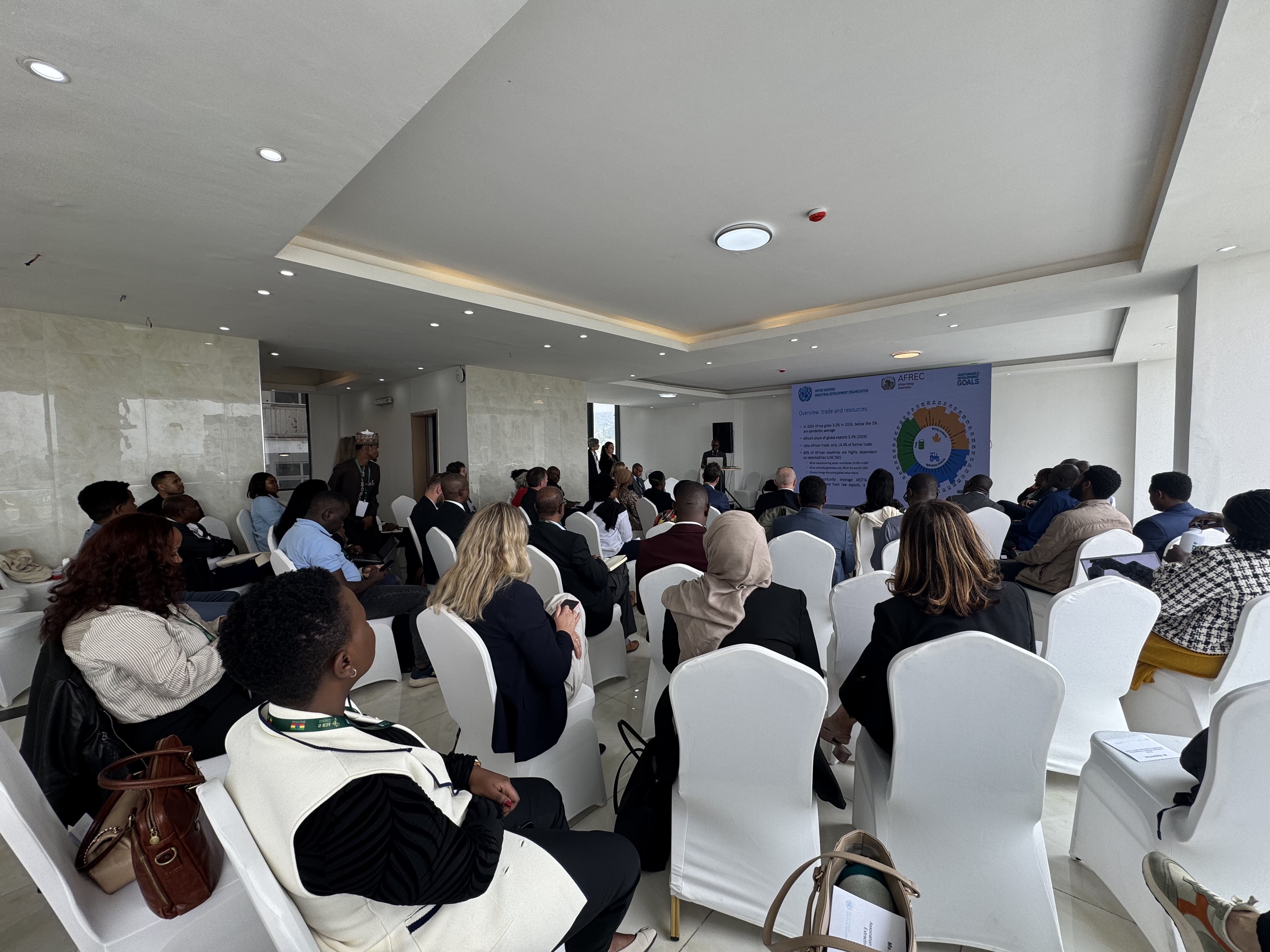
Industrial development stands at a turning point. Structural shifts in global trade, finance, and technology, together with the imperatives of sustainability and decarbonization, are reshaping industrial landscapes worldwide. For Africa, this transition presents both an urgent need and a strategic opportunity: to move beyond its historical role as a supplier of raw materials and emerge as a competitive hub for clean technology and green industrialization. By aligning industrial, energy, and climate strategies, the continent can not only unlock investment and expand domestic value chains but also generate skilled jobs and drive a resilient, inclusive economic transformation.
In this landscape, cleantech emerges as a key sector for Africa’s energy and industrial future. With global demand for clean energy technologies projected to grow four- to sixfold by 2030 (IEA, 2024), Africa is poised to play a decisive role in both upstream activities, such as the production of critical minerals, and downstream processes, including component manufacturing. Strategic investments in refining, manufacturing, and industrial infrastructure could simultaneously advance the Africa 2063 Agenda, support the global clean energy transition, expand energy access, strengthen competitiveness, and reduce trade imbalances by replacing imports with African-made products.
The CLEVA Program responds directly to these challenges and opportunities. Requested by the African Union Ministers in 2023 and co-developed by AFREC and UNIDO, this new initiative aims to establish competitive, integrated cleantech value chains that support a just energy transition, enhance industrial competitiveness, and deliver socio-economic benefits at scale. By linking renewable energy deployment with industrialization, climate resilience, and community benefits, CLEVA seeks to position Africa as an international hub for cleantech manufacturing while adding value to its vast local resources and critical minerals.
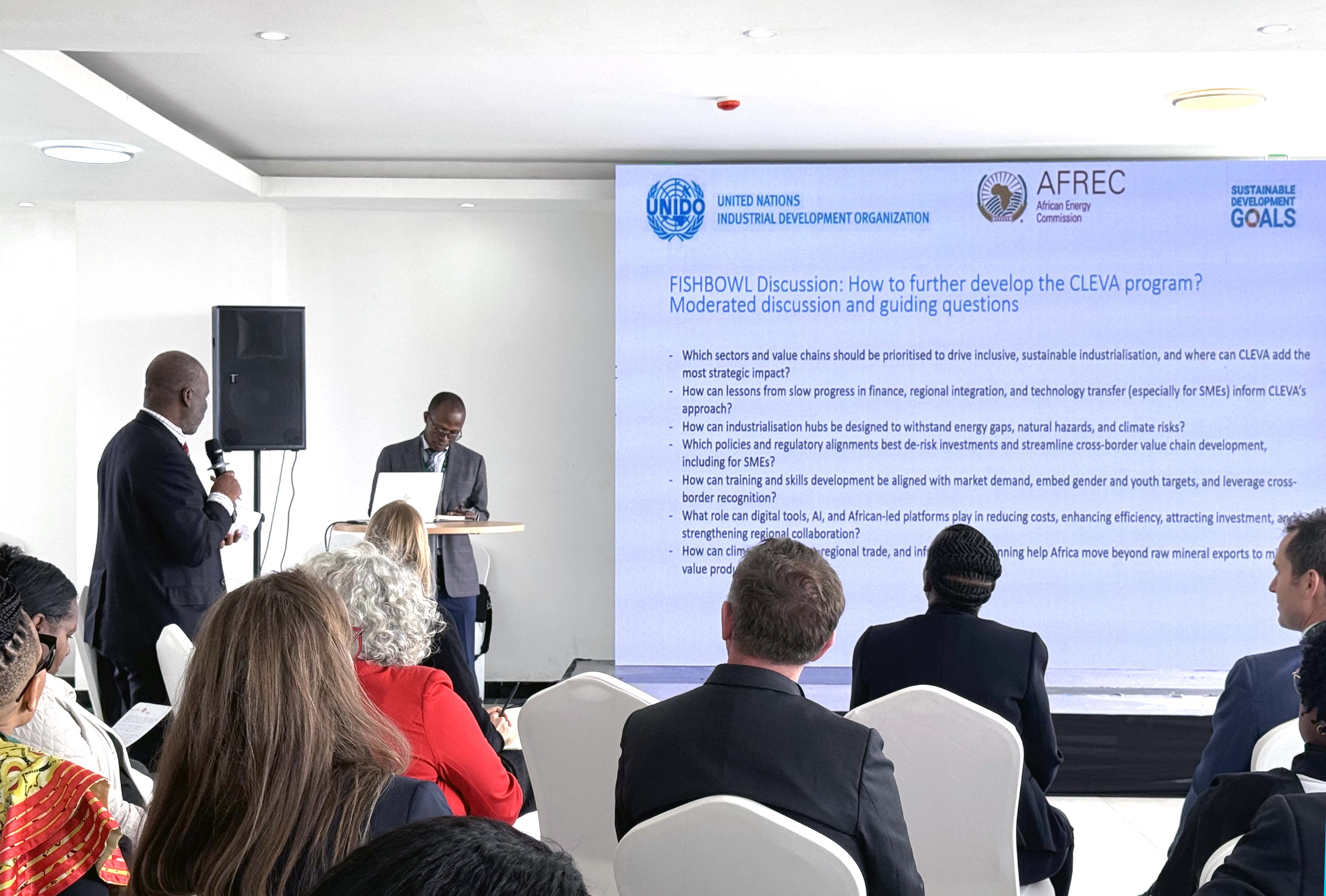
CLEVA’s approach combines industrial innovation, policy coordination, and capacity development. Its specific objectives include mapping technology needs for energy access, assessing the potential for local cleantech manufacturing, identifying critical value chains, and developing a continental roadmap for cleantech industrialization. The program also aims to establish Sustainable Industrial Hubs (SIHs) in strategic locations, build a pipeline of investment-ready projects, and strengthen quality assurance systems to ensure that locally produced technologies meet international standards. Additional priorities include workforce upskilling, fostering research and innovation, and expanding international partnerships to ensure secure access to technology, raw materials, and markets.
At the CLEVA roundtable, high-level experts, including Nickson Bukachi (AFREC), Vincent Duijnhouwer (EBRD), Mbeo Ogeya (WRI), and Lena Dente (World Future Council), discussed critical dimensions for CLEVA’s success: harmonized policies to enable regional trade, local manufacturing capacities to meet growing technology demand, and finance solutions, including blended instruments, to de-risk investments and expand access for small and medium-sized enterprises. Sustainable Industrial Hubs were highlighted as a cornerstone of the program, concentrating industrial zones to promote green manufacturing, innovation, skilled employment, decarbonization of heavy industries, and compliance with certification standards. Panellists also stressed the need for inclusive industrialization, engaging communities and small producers, addressing barriers such as high technology costs, fragmented value chains, and limited technical capacity, while fostering workforce training and public awareness.
Following its presentation at the 2nd Africa Climate Summit, the CLEVA Program is actively mobilizing stakeholders to turn its vision into tangible action across the continent. Immediate priorities include securing high-level political and donor commitment to launch CLEVA as a continental initiative, establishing a dedicated Task Force comprising AFREC, UNIDO, AUDA-NEPAD, and partner with RECs, and commissioning comprehensive value chain assessments alongside industrial hub feasibility studies. The program will also develop investment roadmaps for priority sectors, roll out a continental skills development initiative to strengthen local cleantech manufacturing capacity, and formalize a donor platform to facilitate co-financing, ensuring the resources necessary to drive inclusive, sustainable, and climate-resilient industrial growth across Africa.
"An inclusive and just transition anchored in industrial solutions stands as one of the most powerful levers for Africa’s sustainable development,” said Karin Reiss-Haimbala. “With cleantech emerging as a key driver of industrialization and the energy transition, Africa faces a historic opportunity to strengthen its competitiveness by becoming a hub for clean energy technology manufacturing. UNIDO and AFREC are committed to working hand in hand to establish the enabling conditions through policies, blended finance mechanisms, and skills development that are necessary to catalyse integrated regional cleantech value chains across the continent”, she continued.

